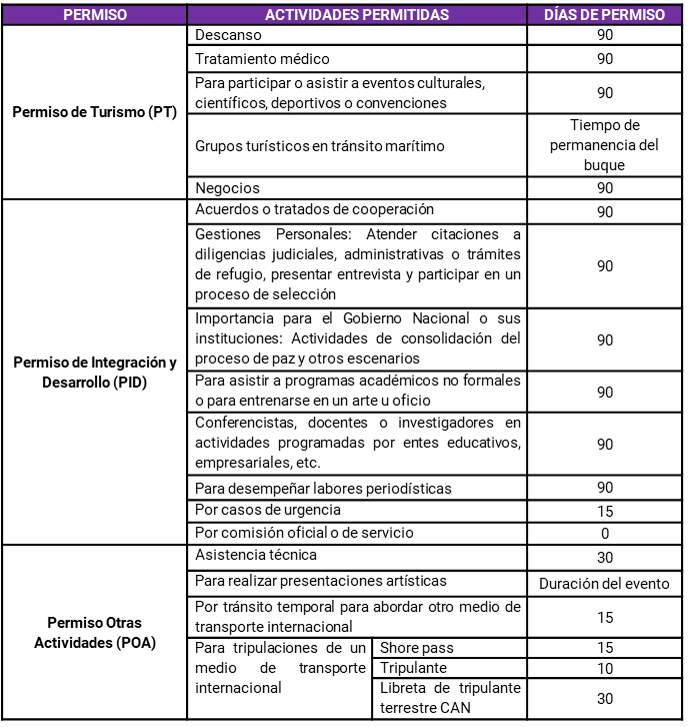Resolution 3167 of 2019 of Migration Colombia established the new protocol for the entry and exit of the country of nationals and foreigners, in addition to the mechanisms and regulations applicable to the migration control process with important changes that will facilitate the dissemination and compliance with the regulations. Here are the main news:
1. Entry and Stay Permits

- The reduction from ten (10) types of entry and stay permits to only three (3) will speed up the time that foreigners will spend at the immigration control post upon entering the country, also facilitating the work of the Migration Officer Colombia.
- In turn, the assignment of the new entry and stay permits will reduce the errors that used to appear in the marking of the permit in the passport. These errors at the time of the foreigner’s entry represented a cumbersome correction process, since the change of seal on the travel document had to be requested via the right of petition with a response time of 15 business days.
2. Border Mobility Card
- The Border Mobility Card is aimed at foreigners from neighboring countries who, due to their daily activities, require entering the border areas of Colombian territory without the intention of settling in the country (pendular migration).
- To obtain the Border Mobility Card, a pre-registration must be made on the Migración Colombia website including biographical and demographic data.
- To enter Colombian territory, the foreigner must present his national identity document along with the Border Mobility Card.
- The Border Mobility Card will be valid for two (2) years from the date of registration or issuance.
- The Border Mobility Card in no case: (i) replaces the national identity document; (ii) it is equivalent to a business visa, temporary or permanent residence in the Colombian State; (iii) constitutes a work permit; (iv) empowers the holders to travel to places other than those stipulated as a border zone; (v) recognizes domicile in the national territory.
